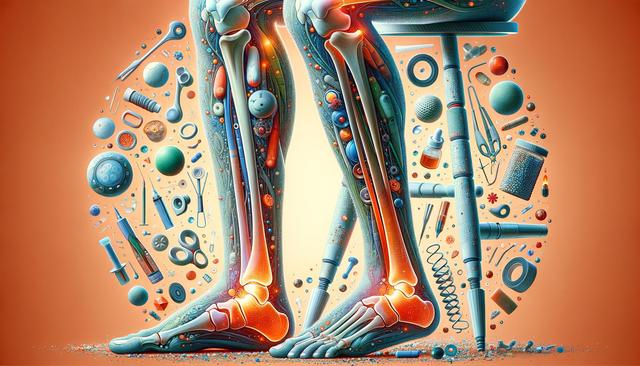Understanding the Root Causes of Nighttime Leg Pain
Experiencing leg pain during the night can be both frustrating and disruptive, especially when it interferes with your ability to get a good night’s rest. Identifying the underlying reasons is the first step toward effective treatment. Common culprits include muscle fatigue, dehydration, or poor circulation. In some cases, issues such as nerve compression, restless leg syndrome, or underlying medical conditions like diabetes may also be responsible. Exploring Leg Pain At Night Causes And Relief can help uncover patterns and triggers that contribute to discomfort, guiding you toward more targeted solutions.
Nighttime muscle pain in legs may also be linked to long periods of inactivity during the day, which can cause stiffness and cramping once you lie down. Stretching, walking briefly before bed, or adjusting your seating and sleeping posture may provide noticeable relief. Understanding the physiology behind nocturnal leg pain empowers you to take informed steps toward prevention and recovery.
How to Address Nighttime Leg Cramps Effectively
If you find yourself waking up with painful cramps in your legs, you’re not alone. Knowing How To Stop Nighttime Leg Cramps involves a combination of immediate relief techniques and long-term preventive strategies. Stretching the affected muscle, massaging the area, or applying a warm compress can provide quick relief during an episode. Staying hydrated and ensuring a balanced intake of electrolytes such as magnesium and potassium can help reduce the frequency of cramps over time.
Here are some practical tips that may help minimize cramping:
- Drink plenty of water throughout the day to stay hydrated.
- Incorporate light stretching exercises into your evening routine.
- Avoid excessive caffeine or alcohol before bedtime, as they may contribute to dehydration.
- Consider supportive footwear for daytime use to reduce strain on leg muscles.
Tailoring your daily habits to support muscle health can go a long way in preventing nighttime discomfort. If cramps persist despite lifestyle changes, consulting with a healthcare provider may help identify any underlying issues requiring medical attention.
Natural Remedies and Lifestyle Adjustments
For those seeking Remedies For Leg Pain While Sleeping, a variety of natural and lifestyle-based approaches can offer relief without the need for medication. Gentle yoga or stretching in the evening can help relax tense muscles and prepare your body for rest. Warm baths infused with Epsom salts may also soothe aching legs and promote better sleep. Additionally, elevating your legs slightly with a pillow can improve circulation and reduce pressure on nerves and muscles.
Other helpful remedies include:
- Using a heating pad or hot water bottle on sore areas.
- Applying magnesium oil or cream to the legs before bed.
- Practicing deep breathing or meditation to reduce stress-induced muscle tension.
These approaches not only aim to alleviate pain but also promote a more restful and uninterrupted sleep. Incorporating these habits consistently can make a noticeable difference in how you feel when you wake up.
Managing Restless Legs and Sleep Disruptions
Restless legs syndrome (RLS) is another common reason people experience discomfort at night. This condition causes an uncontrollable urge to move the legs, often accompanied by tingling or burning sensations. If you’re dealing with Restless Legs And Sleep Issues, understanding your triggers is crucial. Stress, caffeine, iron deficiency, and certain medications can all exacerbate symptoms. Tracking your symptoms in a journal may help identify patterns linked to flare-ups.
To manage RLS effectively, consider the following:
- Maintain a regular sleep schedule to support your body’s natural rhythms.
- Avoid screens and stimulating activities before bed.
- Ensure your diet includes adequate iron, folate, and magnesium.
- Consider moderate, regular exercise during the day, but avoid intense activity close to bedtime.
When lifestyle changes aren’t enough, speaking with a healthcare provider about medical therapies can help. Treatments may include iron supplements, medications, or behavioral therapy depending on the severity of symptoms and underlying causes.
When to Seek Medical Advice
While many cases of nighttime leg pain can be managed at home, persistent or severe symptoms warrant professional evaluation. Chronic Nighttime Muscle Pain In Legs that resists self-care efforts may be linked to circulatory or neurological conditions that require specific treatment. Swelling, redness, or warmth in one leg could signal a more serious issue like a blood clot and should be addressed immediately.
It’s advisable to consult a healthcare provider if you experience:
- Frequent, intense leg cramps that disrupt sleep regularly.
- Sensations of numbness, tingling, or weakness in the legs.
- Noticeable changes in skin color or temperature.
- Pain that worsens over time or doesn’t improve with rest and home care.
A medical professional can conduct tests to determine the root cause and recommend appropriate treatment options. These may include physical therapy, medication adjustments, or further diagnostic evaluations to rule out serious conditions.
Conclusion: Taking Steps Toward Restful Nights
Relieving leg pain during the night is essential for improving your overall sleep quality and daily functioning. By understanding the Leg Pain At Night Causes And Relief landscape, exploring Remedies For Leg Pain While Sleeping, and knowing How To Stop Nighttime Leg Cramps, you can take meaningful action to minimize discomfort. Additionally, addressing Restless Legs And Sleep Issues and recognizing when Nighttime Muscle Pain In Legs requires medical attention ensures a well-rounded approach to your care. Implementing small but consistent changes can ultimately help you wake up feeling more refreshed, energized, and ready to take on the day.




Leave a Reply